Doing a self-assessment can be helpful when you’re trying to figure out your next steps in life.
Maybe you want to go back to school but aren’t sure what program would be a good fit for you. Or perhaps you’ve felt stuck in a rut and don’t know how to get out.
In either case, completing an effective self-assessment can help clarify what you need to do to move forward effectively with your life.
- What Is a Self-Assessment and Why Should You Do One?
- The Areas of Your Life To Focus On
- Conducting Regular Self-Assessments
- How Does Self-Concept Affect Your Self-Evaluation?
- The Secret to an Effective Self-Evaluation
- Question You May Have
What Is a Self-Assessment and Why Should You Do One?
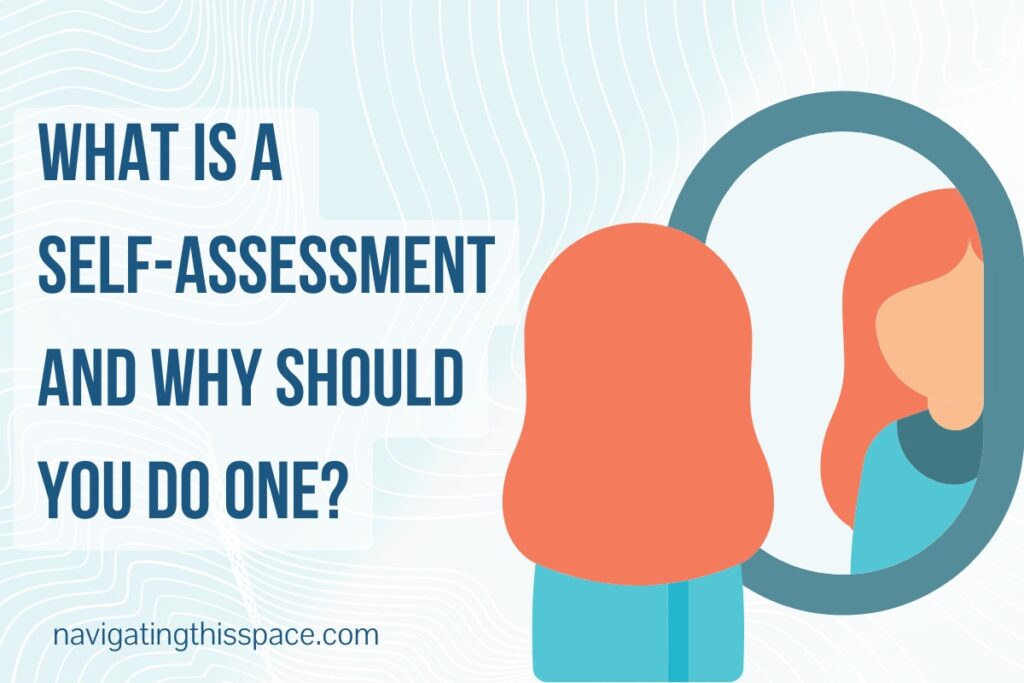
A self-assessment is simply a process of taking stock of your life and evaluating where you are relative to where you want to be. It can help you identify your strengths and weaknesses, assess what’s working well and what isn’t, and get a better sense of what steps you need to take to achieve your goals and live the life you’re working toward.
Doing a self-assessment might be a good idea for you:
– To figure out your goals and priorities
– To see where you stand currently relative to your goals
– To identify your strengths and weaknesses
– To get feedback from others about your strengths and weaknesses
– To set realistic targets for yourself
The Areas of Your Life To Focus On
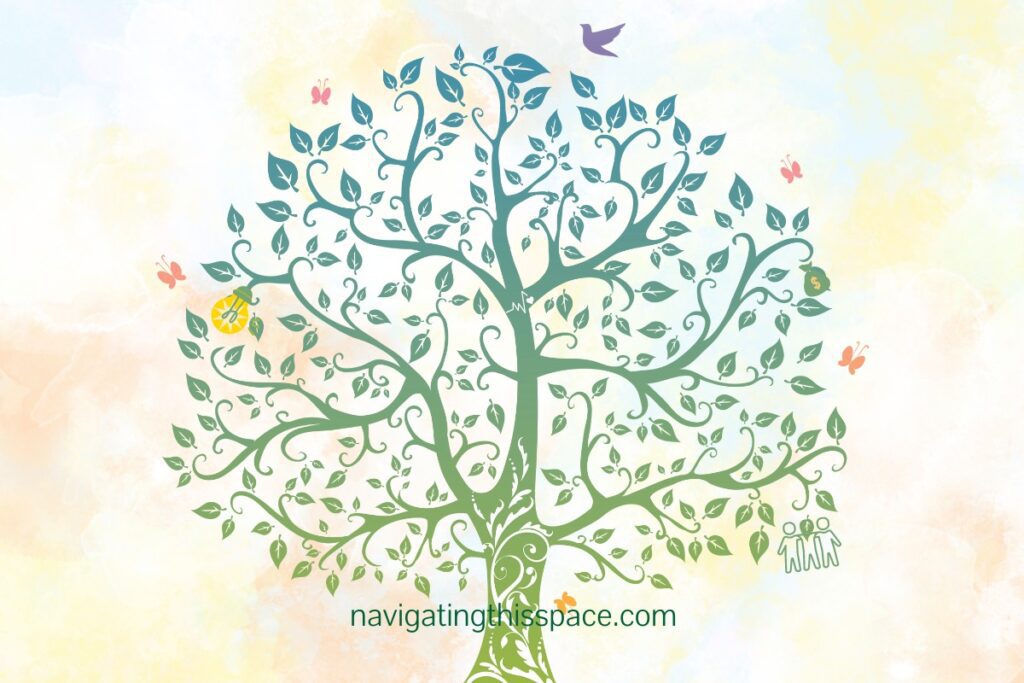
There are many areas in life where you may want to evaluate your progress and current situation.
These are key areas to focus on in your self-assessment in no specific order:
- Health and Wellness
- Personal Growth
- Relationships
- Finances
- Career/Work
- Spirituality
Conducting a self-evaluation in these areas will give you a well-rounded perspective of your current situation and a solid idea of what to do to keep progressing.
Let’s dive a little deeper into each area.
Health and Wellness
Your physical health and well-being are important factors in your overall quality of life. When you’re healthy and feeling good, it’s easier to enjoy your life and do what you want to do without second-guessing if your heart can handle going on that ziplining trip.
It is critical to consider the following when it comes to health and wellness:
– How well you’re taking care of your body
– Your energy levels
– Your stress levels
– Your diet and nutrition
– Your sleep habits
Not paying attention to your health when things are going well can cause significant problems down the road.
Self-assess how you’re doing in this area and make the necessary changes to your lifestyle to improve your health and well-being.
Health and Wellness Prompts
– Did I achieve my health and wellness goals this year (e.g., lose weight, quit smoking)?
– How often did I exercise this year, and how does that compare to last year or other years? Have I been improving?
– How does my current level of activity make me feel physically and mentally?
– What was my diet like this year, and how does it compare to other years, or how would I like it to be different?
– How often did I get regular checkups this year (e.g., dental appointments, physicals)?
– What ongoing health concerns do I have that need attention (e.g., high blood pressure)?
Recommended Article: 5 Reasons You Should Do Whatever You Want
Personal Growth
It’s important that you never stop growing and learning to continue making progress in life.
Personal growth helps you to gain insight into yourself, understand your emotions and behavior better, develop new skills and abilities, and become the best version of yourself.
Some areas of personal growth you may want to focus on are:
– Self-awareness
– Self-esteem
– Emotional intelligence
If you’re not actively working to better yourself, you’re passively working to stay the same or even regress. Self-assess your personal growth regularly to ensure you’re moving in the desired direction.
Personal Growth Prompts
– What were my biggest accomplishments this year, big or small? Why did they matter to me?
– What personality traits would I like to improve? Why?
– Are there any related habits I can work on as well? (e.g., if you want to be more patient, can you start by working on meditation or deep breathing exercises?)
– In what ways did I challenge myself outside of my comfort zone this year? How did it feel, and what did I learn from the experience (if anything)? Would I do it again or differently next time?
– What did I do this year to work on my personal growth?
– How has my self-awareness changed over the past year?
Relationships
Your relationships with the people in your life play a significant role in your overall happiness and satisfaction with life.
It’s important to assess how these relationships are going on a regular basis and make necessary changes.
For example:
If you’ve evaluated a long-time friend and realized they’ve grown more cynical and toxic year by year. It might be time to distance yourself or even end the friendship.
On the other hand, if you realize that you’ve been neglecting your friends and not allowing them the opportunity to connect with you, you can work on making more of an effort to bridge the gap.
Consider all of your relationships when doing your self-evaluation. Every type of relationship in your life serves a specific purpose.
Relationship Prompts
– How much time do I spend with the people who matter to me?
– How much effort do I put into connecting with family and friends, especially the ones who live close by?
– What relationships am I currently in that are toxic or not serving me anymore? How will I exit them?
– Did all my relationships meet my needs this year (romantic, familial, and platonic)? If not, what needs were not being met, and how can that be addressed?
-What did I love about my relationships this year? What made them memorable and meaningful to me?
– Do any of my current relationships need work? If so, what small step can I take to improve things?
Finances
Doing an evaluation of your finances may be overwhelming, especially if you’re not where you thought you’d be at this time in your life.
However, it’s an important part of your learning progress.
Your financial status can greatly impact your overall well-being, so it’s crucial to get a handle on your finances and make a plan for the future.
Some things you may want to consider when assessing your finances are:
– How much debt do you have
– Your income
– Your current savings
– Your credit score
– Your investment portfolio
– Your insurance coverage
Financial Prompts
– How much debt do I currently have? What is my plan for paying it off?
– How much emergency funds do I have? Can it truly cover me in an emergency?
– What is my daily, weekly, monthly, and yearly budget? Did I stay within my budget this year (or if you don’t use a budget, did I avoid going into debt?)
– What were my biggest financial accomplishments this year (e.g., increased savings, paid off debt)?
– Do I have any looming financial concerns for next year (e.g., large purchases)? What am I doing to save up ahead of time?
– Was there anything unexpected that came up financially this year that put a strain on me (e.g., medical bills)? How can I plan for or avoid such surprises in the future?
Career/Work
Your professional development is another important aspect of your life to assess. Your career and work take a huge chunk out of your life, so wasting time focusing on things that don’t interest you will only lead to unhappiness and dissatisfaction.
When evaluating your career development process, you should consider things like:
– Your progression in your field
– Your passion for your work
– The work/life balance you have
– Your relationships with your coworkers
– How much vacation time you have
Career/Work Prompts
– What do I enjoy about my job every day? Be specific.
– Do I feel like I am in the right career field? If not, why? And what steps do I need to take to get into your desired field?
– Have I been promoted? If not, why? What can I do to increase my chances of being promoted in the future?
– Am I being paid what I’m worth? If not, how can I address this?
– What skills have I gained in my current role? What new skills would I like to learn?
– What professional relationships have I built and strengthened? Who do I need to reach out to more?
Spirituality
Connecting with your higher self has always been overlooked, but it’s crucial in having peace and overall contentment.
Developing and growing your spirituality can be done in many ways. Some people find it through religion, others find it through nature, and some find it through creative outlets like art or music.
There are many ways to develop spiritually. There is no right or wrong way to go about it. It’s all about finding what works for you and what helps you connect with your inner self.
Some things you may want to consider when assessing your spirituality are:
– Your current beliefs on what spirituality is.
– What makes you feel most connected?
– The spiritual practices you currently have in place.
– The areas of your life where you would like to see more spiritual growth.
Spirituality Prompts
– Do I consider myself a spiritual person? If not, why?
– What are my current beliefs on spirituality?
– What’s the first thing that comes to mind when I think about spirituality?
– What do I think being connected to a higher power means?
– What is my spiritual practice(s)? Did I stick with it this year or let it fall by the wayside (e.g., praying regularly, meditating daily)?
– How has my spirituality impacted my everyday life this year? In what ways would I like it to impact my life moving forward?
Conducting Regular Self-Assessments
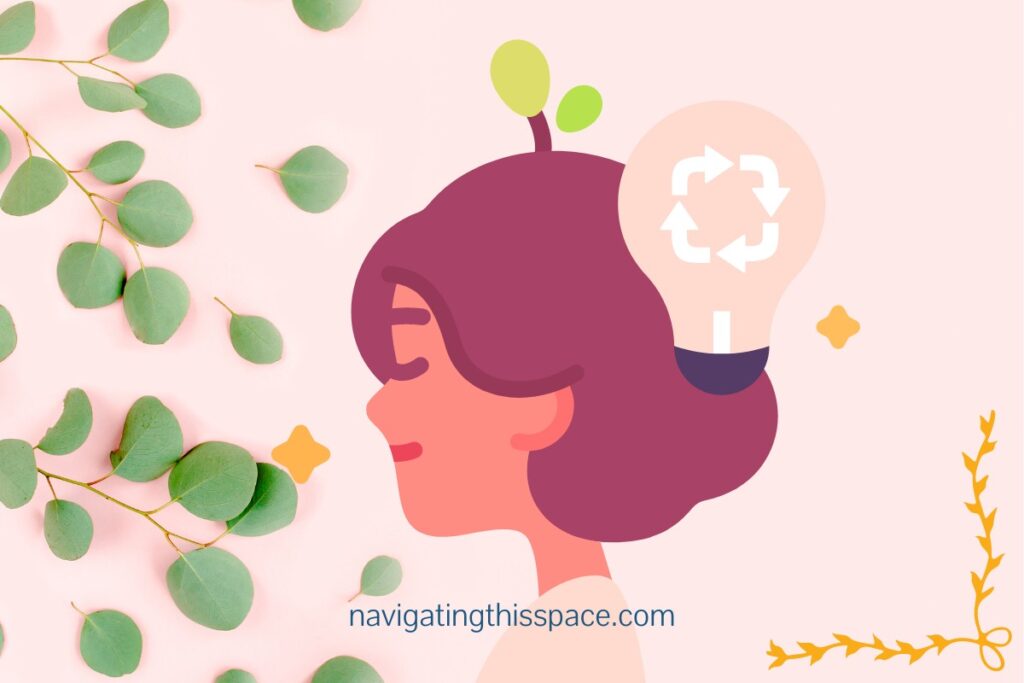
One of the best ways to ensure you’re making continual progress in all areas of your life is to conduct regular evaluations of your personal and professional growth.
Self-monitoring helps you take a step back and look at the big picture to identify any area that needs improvement.
We’re all on a journey of learning what works for us and what doesn’t, and every aspect of you matter in your evaluation.
Don’t omit your personality type, likes and dislikes, habits, and lifestyle choices. All of these factors come into play when deciding what areas you need to focus on for improvement.
Try to conduct a self-assessment at least once or twice a year.
Doing too much reflection can be overwhelming. But checking in with yourself every now and then (every six months) is crucial in making sure you’re on track to accomplishing those New Year’s resolutions you’ve set, those dreams you’ve turned into actionable goals, and those goals you’ve been working on for years.
Self-Assessment Prompts
– How well do I know myself? (e.g., what are my values, goals, and passions?)
– What areas of my life bring me happiness? Which ones don’t? What changes can I make to eliminate the ones that don’t bring me happiness?
– What are the things I am doing in my everyday life that are moving me closer to my ideal life?
– What progress have I made this year in the areas I want to improve? What can I do differently moving forward if no progress has been made?
– Am I happy with my current situation in life? If not, what steps do I need to take to make changes?
– Who are the people in my life who bring me happiness or drain my energy? What am I doing to eliminate the energy vampires?
Recommended Article: Writing Resolutions For Personal Growth and Development
How Does Self-Concept Affect Your Self-Evaluation?

Self-concept is basically how you see yourself — your self-image.
A healthy self-concept means believing in yourself, loving yourself, and being confident with who you are when no one else is looking.
A lot of people struggle with having a positive self-concept which can lead to all sorts of problems like depression, anxiety, and low self-esteem. This is why self-concept plays a big part in your evaluation.
If you see yourself in a negative light, then your final grade in your assessment will more than likely reflect that. If you see yourself as a work in progress with a great potential then your assessment will be more positive.
It all comes down to your mindset and how you view yourself.
Self-concept takes time to improve, especially if you don’t think highly of yourself, but it’s worth the time and effort because a healthy self-concept leads to a more positive outlook on life.
The Secret to an Effective Self-Evaluation

The secret to conducting an effective self-evaluation is incredibly simple.
The secret is: Be honest with yourself.
That’s it!
You can’t improve if you’re not honest about the areas that need improvement, and you can’t progress if you’re not honest about your current situation.
The only way to get an accurate self-evaluation is to take an unbiased look at your life and be honest about what you see.
And once you have your results, be honest with yourself about the steps you need to take to make the changes you want to see in your life.
The bottom line is that if you want to improve your life, you need to be honest about where you’re at and what needs to be done.
How do you self-evaluate?
What tips do you have for conducting an effective self-evaluation that didn’t make it into the article? Let me know in the comments below!
Also, sign up for my free weekly newsletter to get tips on how to live a happier life.

Question You May Have
What is the purpose of self-assessment?
The purpose of conducting a self-assessment is to evaluate your current situation accurately, so you can make the necessary changes to improve your life. A self-assessment can help you identify your strengths and weaknesses, set goals, and track your progress.
How often should I conduct a self-assessment?
You should conduct a self-assessment on a regular basis, at least once or twice a year. Doing a self-assessment more often can be helpful if you’re trying to make significant changes in your life.
What are some common self-assessment questions?
Some common self-assessment questions include:
– How do I feel about my current life situation?
– What progress have I made in my personal and professional life?
– Who are the people in my life that are making me a better person?
– What am I doing that is holding me back from reaching my full potential?
Pin It!
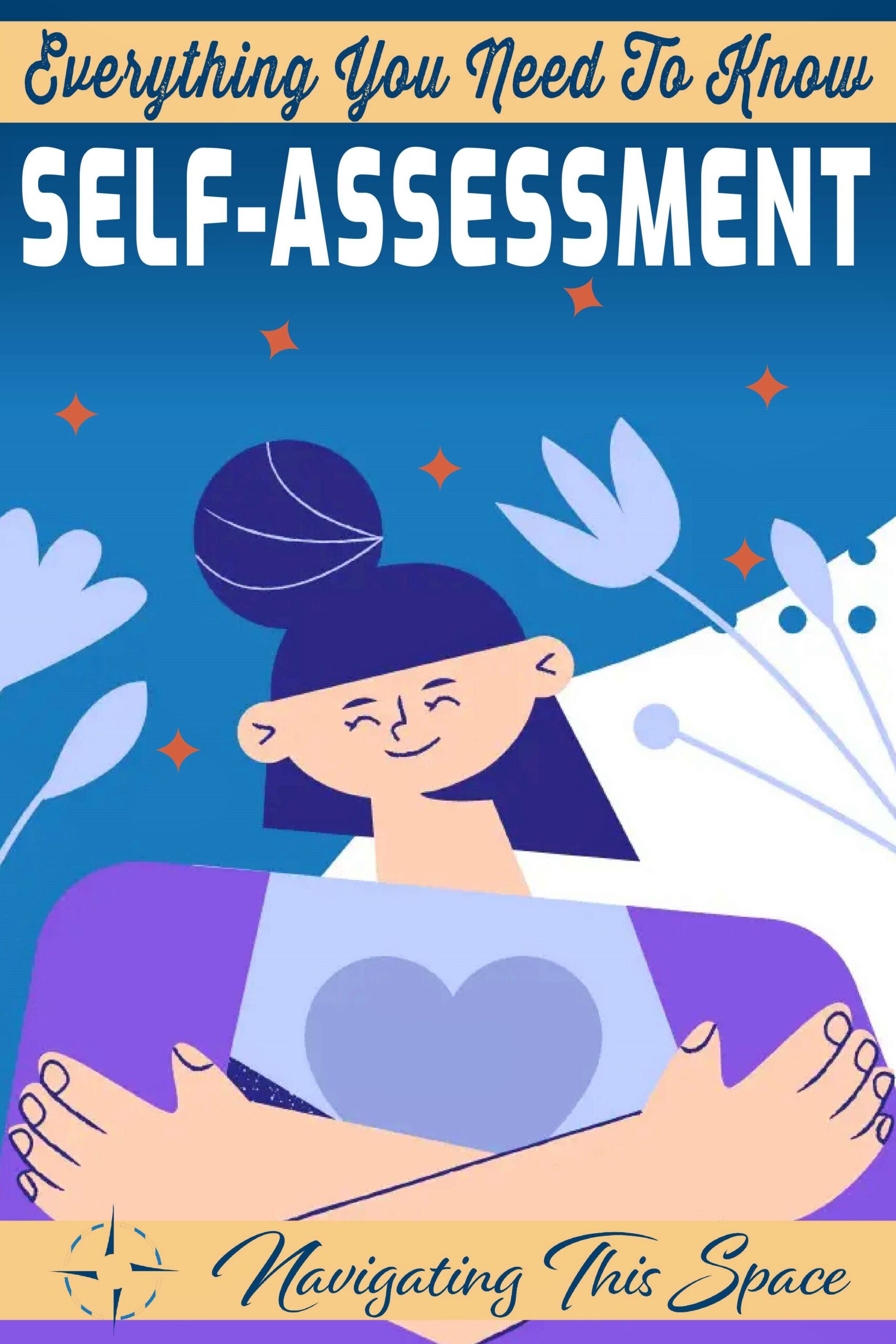
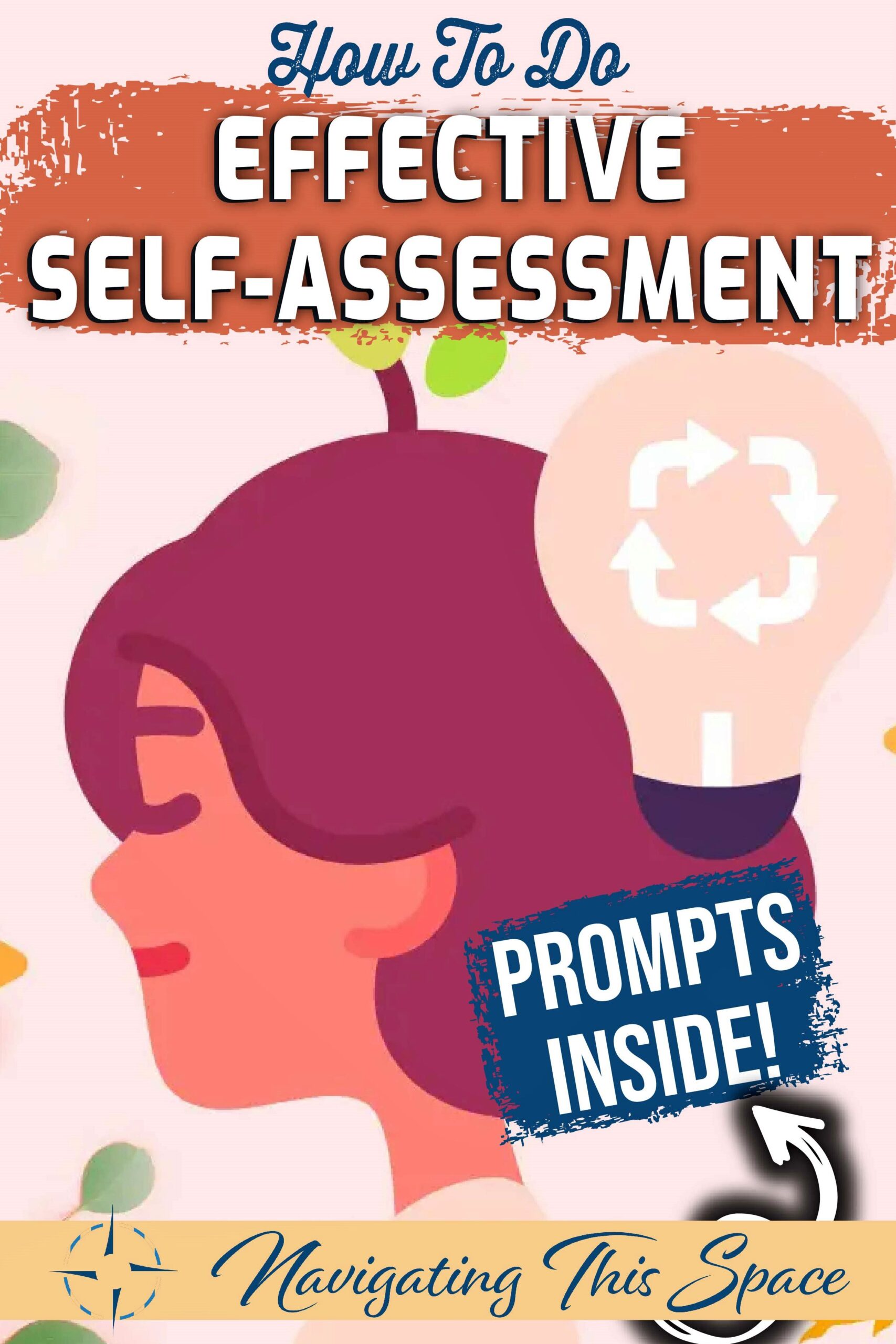




My self assessments take the form of mental checks weekly as well with talking with my therapist, but this takes things one step further! I’m intrigued! Thanks so much for sharing! I’ll give this a try!
I absolutely love this post! You give great insight about self-assessments and why you should do them. I enjoyed the part about the different areas of life and the prompts that go with them. I look forward to reading more articles!
Love how informative this post is! These are great prompts to get you thinking about the different aspects of your life. I look forwarding to reading more articles!
These are great! I highly encourage everyone to do a self-assessment to be more self-aware and these prompts are a wonderful way to do it.